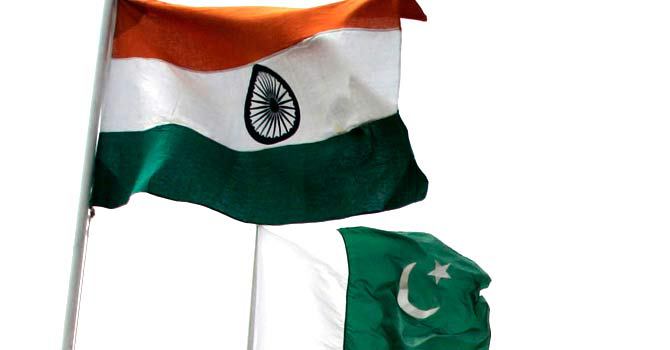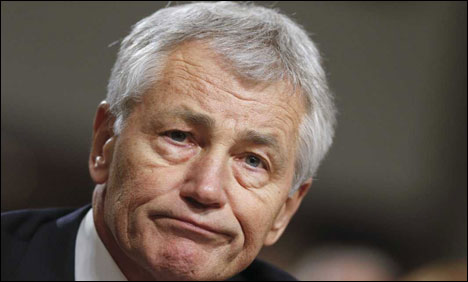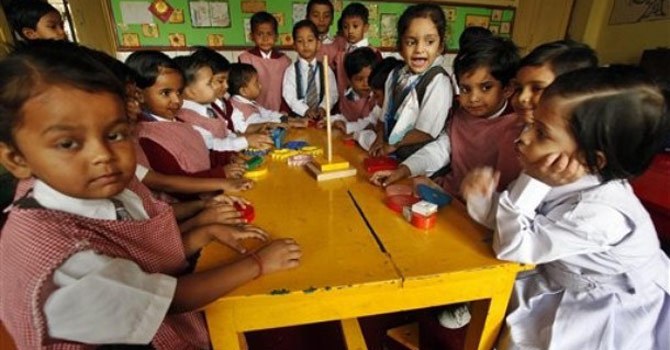- Web
- Humsa
- Videos
- Forum
- Q2A



In a partial award announced in the Kishanganga dispute, the Hague-based Court of Arbitration allowed India on Monday to divert only a minimum flow of water from Neelum/Kishanganga River for power generation.
The Indian government had sought full diversion of the river water, but the court determined that India was under an obligation to construct and operate the Kishanganga Hydroelectric Plant (HEP) in such a way as to maintain a minimum flow of water in the river at a rate to be determined by the court in its final award.
A copy of the judgment available with Dawn shows that the final award will be announced in December this year. The court asked India and Pakistan to provide data by June so that it could determine the minimum flow of water.
On May 17, 2010, Pakistan had instituted arbitral proceedings against India under the Indus Waters Treaty 1960 and approached the International Court of Arbitration (ICA) against violation of the treaty. The ICA granted a stay and stopped India from constructing the 330MW Kishanganga hydroelectric project in occupied Kashmir.
Pakistan had put two questions, which were legal in nature, before the tribunal — whether India’s proposed diversion of the Neelum/Kishanganga River into another tributary breaches India’s legal obligations owed to Pakistan under the treaty and whether under the treaty, India may deplete or bring the reservoir level of a run-of-river plant below the dead storage level in any circumstances except in the case of an unforeseen emergency.
On the second question, the court determined that except in the case of an unforeseen emergency, the treaty did not permit reduction below the dead storage level of the water level in the reservoirs of run-of-river plants on the western rivers.
onstitute an unforeseen emergency that would permit depletion of the reservoir below the dead storage level for drawdown flushing purposes. Accordingly, India may not employ drawdown flushing at the reservoir of the Kishanganga hydroelectric plant to an extent that will entail depletion of the reservoir below dead storage level.
A senior official who is familiar with the development told Dawn that the court’s decision had endorsed Pakistan’s view that the neutral expert’s decision in the Baglihar case regarding drawdown flushing below the dead storage level was wrong and in gross violation of the parameters defined by the Indus Waters Treaty. Henceforth, designs and operations of run-of-river plants on western rivers would be determined by this decision and not that of the neutral expert.
By obtaining this award, Pakistan has taken the issue of Indus waters with India on a new basis. The years of inconclusive discussions and delays in the Indus Waters Commission during which Pakistan was constantly frustrated by the apparent inability of the commission to oversee the water regime effectively have been brought to an end.
Experts said the award had clearly and conclusively established that there were procedures set out in the Indus Waters Treaty that India must follow and the commission must secure and that India’s compliance with these obligations could and would be reviewed by international courts.India is constructing the 330MW hydroelectric project with a dam at Gurez from where it intends to divert the entire winter flow through a tunnel and deliver water into Bunar, Madhmati, Nallaat, Bandipora in occupied Kashmir.
The court’s partial decision is clear in this regard that it permits India to divert water for power generation but will determine limits and parameters of the diversion. The court will define a minimum flow regime and thus India will be unable to divert permanently complete winter flows over a period of six to eight months in a year.
The Indus Waters Treaty denoted the conclusion of protracted and taxing negotiations ending the canal waters dispute which had erupted in 1948. Unlike other water treaties, it created an inimitable paradigm by allocating entire rivers dividing the Indus system of rivers between India and Pakistan. While largely perceived to be an exemplary accord having endured two wars and constant strain between the two governments, some experts question its efficacy. They consider this view to be a misnomer as India’s disregard for the treaty began from its inception.
From its planned construction of Wullar Barrage in 1961, failures to release canal waters in 1965, Dul Hasti, Salal, Baglihar, Kishanganga, Nimoo Bazgo, Chutak, Uri-I to many other projects on the western rivers, India has ignored its treaty obligations and designed its projects as it saw fit.
The erroneous perception stems from Pakistan’s omission to take timely action against illegalities. India proceeded with the construction of works not permitted under the treaty and kept Pakistan engaged in correspondence and negotiations for years while taking their projects to a stage of a fait accompli.
 Syrian rebels downed a warplane over Hammuriyeh on Wednesday, shortly after an air strike killed at least 14 people and wounded dozens more in the Damascus province town, a watchdog and activists said.
Amateur video shot by activists and distributed by the Syrian Observatory for Human Rights showed a warplane firing from the sky and then going down in fla..... Read more
Syrian rebels downed a warplane over Hammuriyeh on Wednesday, shortly after an air strike killed at least 14 people and wounded dozens more in the Damascus province town, a watchdog and activists said.
Amateur video shot by activists and distributed by the Syrian Observatory for Human Rights showed a warplane firing from the sky and then going down in fla..... Read more
 The Senate voted narrowly on Thursday to block a vote on confirmation of President Barack Obama's choice of Chuck Hagel as defense secretary, planning another vote for February 26 - when it is expected to pass.
The tally was 58-40, with almost every Republican voting no, falling short of the 60 needed to pass a motion in the 100-seat chamber to stop deba..... Read more
The Senate voted narrowly on Thursday to block a vote on confirmation of President Barack Obama's choice of Chuck Hagel as defense secretary, planning another vote for February 26 - when it is expected to pass.
The tally was 58-40, with almost every Republican voting no, falling short of the 60 needed to pass a motion in the 100-seat chamber to stop deba..... Read more
 LONDON: Four men including a police officer were in hospital Sunday after being stabbed during an attack at a mosque in the English city of Birmingham, police said.
Officers were called out to a mosque in the city's Ward End area late Saturday after reports that three men had been stabbed, said a spokesman for West Midlands Police.
While a suspect ..... Read more
LONDON: Four men including a police officer were in hospital Sunday after being stabbed during an attack at a mosque in the English city of Birmingham, police said.
Officers were called out to a mosque in the city's Ward End area late Saturday after reports that three men had been stabbed, said a spokesman for West Midlands Police.
While a suspect ..... Read more












 Clean Chit (Faisal Raza Abidi ...
Clean Chit (Faisal Raza Abidi ...  Akhir Kiyon - 16th December 2...
Akhir Kiyon - 16th December 2...  To The Point - 16th December ...
To The Point - 16th December ...  Capital Talk â
Capital Talk â  Kal Tak - 16th December 2013
Kal Tak - 16th December 2013  Bay Laag - 16th December 2013
Bay Laag - 16th December 2013  Kharra Sach - 16th December 2...
Kharra Sach - 16th December 2...  Awaam - 15th December 2013
Awaam - 15th December 2013 





 Gold Miner
Gold Miner  Superbike GP
Superbike GP  Whipsaw Fighter
Whipsaw Fighter  PacMan
PacMan 


